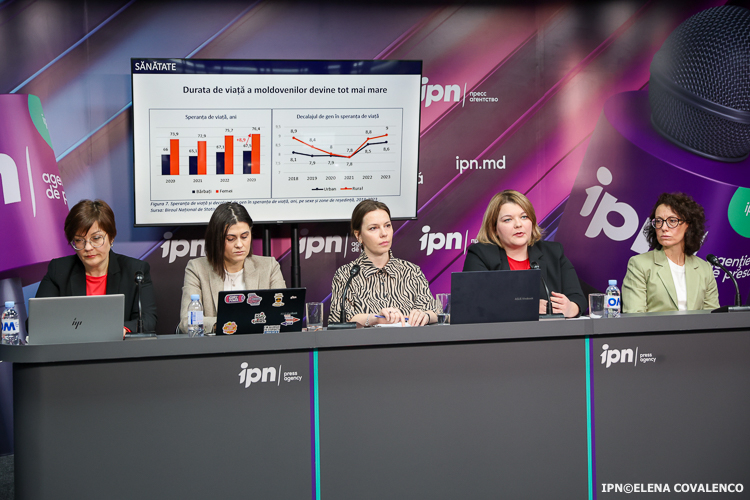
The Gender Equality Index 2025 shows fragile progress in several areas, including labor market and education. But the biggest setback in recent years has been in the area of stereotyping and prejudice. Experts from the Center for Partnership for Development, which presented the index today, say that general perceptions and stereotypes in society have implications for how women and men find themselves in certain areas, affect their rights, and their ability to access social, economic, development and social resources and opportunities.
In a press conference at IPN, Natalia Covrig, executive director of the CPD, said that for 15 years, on the eve of or on March 8, the Center has been launching the Gender Equality Index, which is calculated according to a series of indicators in six key areas. These are the labor market, politics, education, health, access to resources, perceptions and stereotypes. "What the 2025 index shows, on the one hand we could say that we have some optimistic and positive trends, on the other hand we have some regressions, which worry us," says the CPD director.
According to Natalia Covrig, out of the six areas analyzed, only two have made progress, but very fragile and modest. These are the labor market and education, areas where in 2025 there was an advance of only 0.6 points. "So we don't even have a full point. It is a very modest progress, but it is optimistic that the advancement of gender equality in the Republic of Moldova is not completely stagnating," said Natalia Covrig.
In two other areas - politics and access to resources - the situation is unchanged. For several years now, these areas have not been making any obvious progress and are stalling. "Despite the fact that measures, including legislative ones, have been taken in the last two years, they have not yet been reflected in clear trends and improvements," explains the head of the CPD.
On the other hand, in two areas there has been significant regression. In health, for example, the gender equality index fell by 1.8 points from the previous year. In the "stereotypes and prejudices chapter" there was a significant regression, which means a 3.8 point step back.
Alexandra Ermolenco, program coordinator at the CPD, noted that women are under-represented in leadership positions in central public administration. Thus, the lower the positions on the hierarchical ladder, the higher the representation of women. "Regrettably, when we talk about decisive positions at the top, their share is low. But a positive side is the representation of women in the cabinet of ministers. We have 31% of women, which places Moldova as a leading country in this chapter of representation," the expert noted.
Gheorghina Drumea, a member of the Council for Equality, said that, unfortunately, most men continue to believe that a woman's place is in the kitchen, that he knows better where a woman's place is and that is why he can control what a woman does and says. "Unfortunately, it is a regression, because in a democratic society, with so many policies being implemented, with aspirations of EU integration, instead of progressing, we are regressing. It is a dangerous phenomenon," Gheorghina Drumea added.
Note: The IPN Agency offers the right to reply to the people who consider themselves concerned by the statements made by the organizers of this press conference, including by facilitating the organization of another press conference under similar conditions.












